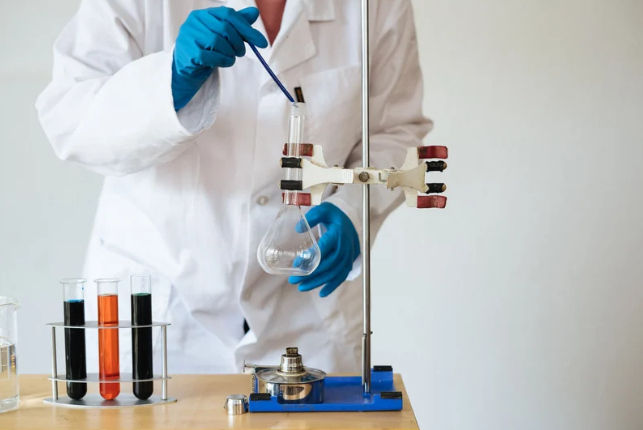In a broad sense, specialty chemicals are single-chemical entities or mixtures designed for a specific application. Consequently, they are manufactured in low volumes and have higher margins than bulk chemicals.
Specialty chemicals are found in numerous industrial sectors, such as paints, coatings, electronics, and automobiles. They substantially impact the environment and are regulated heavily by governments worldwide.
All About Specialty Chemicals

How do they work?
A specialty chemical is a special ingredient used in specific applications. These products require a lot of expertise in chemistry, quality-assured processes, precise technology and machinery, and ingenuity.
They are also often produced in low volumes to meet a niche demand for a specific application or product. For example, antibiotics are tailored to one particular disease problem, or pesticides are used to control clear weeds and insects.
Many specialty chemicals are restricted to a limited number of manufacturers due to patents, but as they expire and market demand grows, they can become commodities. In addition, commodity chemicals are fungible, meaning they can be interchanged freely.
What are their applications?
Specialty chemicals are high-value chemicals that serve a range of critical markets. These include performance chemicals, agricultural chemicals, and pharmaceuticals.
The specialty chemical market has proliferated primarily because of increased demand for construction and water treatment chemicals. Advancements in process technology and trade liberalization are also contributing to the growth of this industry.
Most specialty chemicals are manufactured in a batch process. It involves introducing measured amounts of starting materials into a vessel and conducting unit operations (mixing, heating, reaction, distillation) at discrete scheduled intervals. The end product is a continuous chemical typically stored and used for a specific application.
What are specialty chemicals’ uses?
Specialty chemicals are chemical products formulated and manufactured to meet the specific needs of their customers. They are sold based on performance or function and produced under strict quality controls.
Unlike commodity chemicals, which can be manufactured in large volumes by various manufacturers, specialty chemicals are made in small batches using batch processing techniques.
These are primarily used in the automotive, aerospace, food, and manufacturing industries and consumer goods such as paints and adhesives.
What are their disadvantages?
Specialty chemicals are highly differentiated products that require substantial research and development (R&D) investment. Their specialized nature also creates essential barriers to entry.
These barriers include technical know-how, capital intensiveness, service capabilities, customer relationships, and engineered or regulated specifications. These factors protect the industry against new entrants and allow specialty chemical companies to survive through intense price-based competition.
A specialty chemical company may have a high-profit margin even when its costs exceed the industry average. It is primarily due to their ability to pass on the input cost increases to customers and their pricing power.
What are their advantages?
Specialty chemicals are used in various consumer products and industrial applications. They’re also an essential part of the global economy.
They’re manufactured on a small scale in batch chemical plants using process manufacturing techniques. These include mixing, heating, cooling, making more chemical reactions, distillation, crystallization, and separation.
In addition, the specialty chemical industry relies heavily on patenting innovation to protect its core knowledge. As a result, it is a significant competitive advantage.
Managing raw materials and inventory is critical to running a successful chemical business. Companies need to be able to track inventory turns, buffers, and raw material costs per tonne of product produced.
What are their futures?
The specialty chemicals industry has a rich history of impacting society. They are a vital part of the solution to many global issues, including energy and water conservation, food safety, agriculture, and environmental sustainability.
Specialty chemical manufacturers are accelerating the development of new and innovative products, increasing their knowledge of chemicals, and introducing novel ingredients for specific applications. These innovations are also generating a growing market for their products.
Another trend in the specialty chemical market is that manufacturers implement sustainable initiatives, using bio-alternatives and more selective and energy-efficient separation processes. These efforts are gaining ground and competing directly with their fossil-based predecessors.
Other Posts You Might Like:
How Can I Clear My Clogged Drain Without Chemicals?
Artificial Grass – Why It’s Better For The Environment





